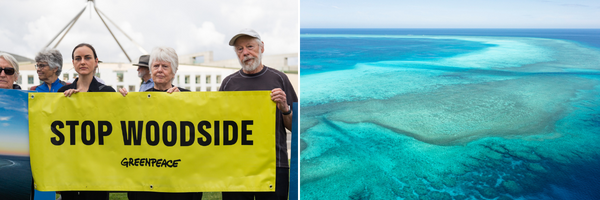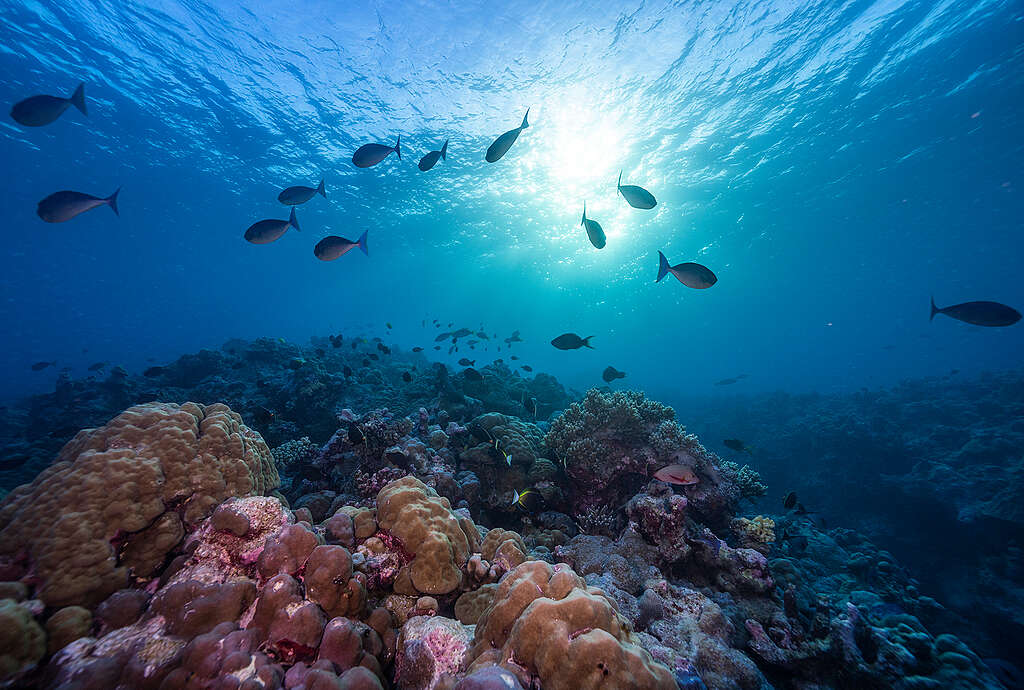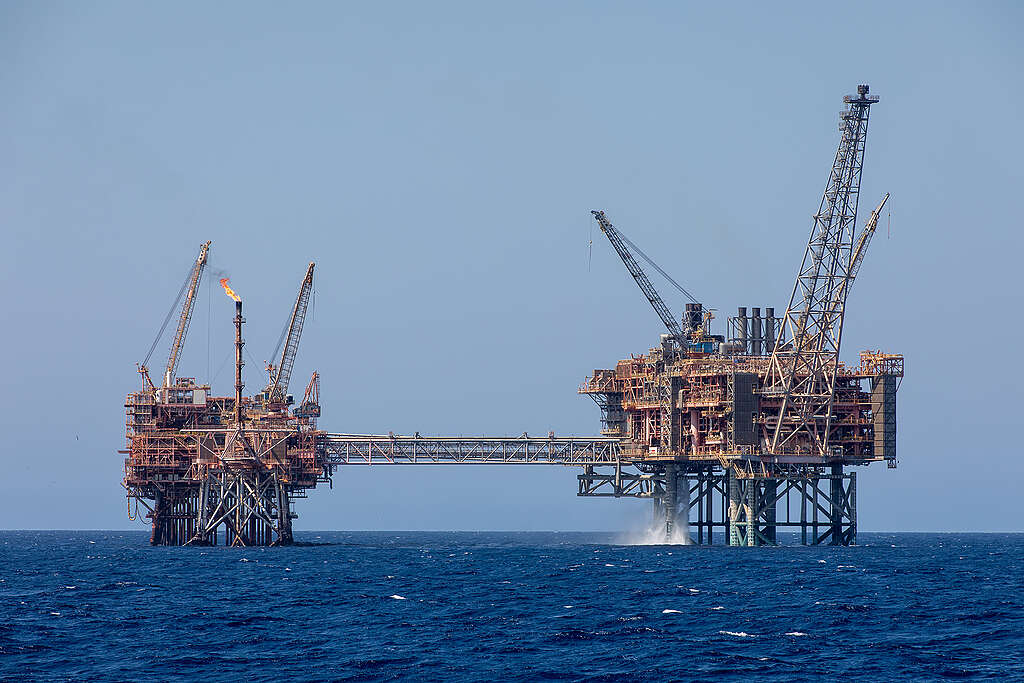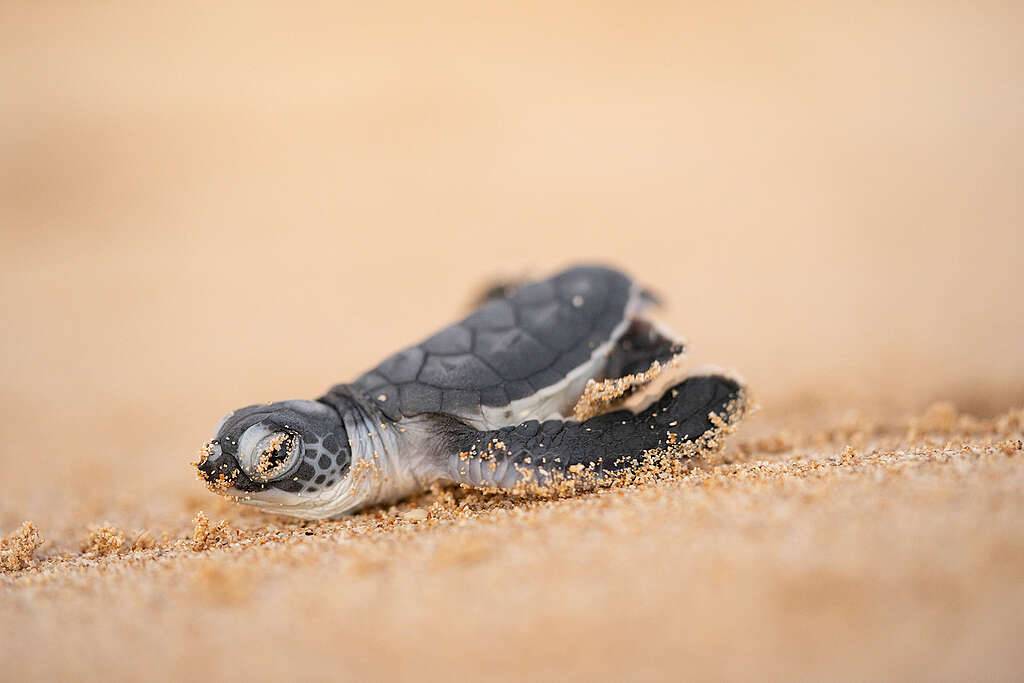On the 28th July Greenpeace staff and a dozen ocean protector volunteers will travel to Canberra to meet with Members of Parliament and Senators. Why? To call on the Government to save one of Australia’s most unique and pristine reefs, Scott Reef, from Woodside’s dirty gas plans.
“This is a monumental and historic fight to save a reef that is so remote many don’t know it exists. Our goal is to shed light on its beauty and take the story of the reef to the halls of Canberra.” – Gemma Plesman, Campaigner for Greenpeace.

The choice is now in the hands of the government. Approving Woodside’s Browse project at Scott Reef would risk greenlighting the slow destruction of one of Australia’s last untouched reef systems. Rejecting it could mark a defining moment for ocean conservation—a decision remembered alongside the protection of the Great Barrier Reef, the Franklin River and the Daintree.
Scott Reef: Like Nowhere Else
Far off the wild coast of North West Australia lies Scott Reef, the nation’s largest oceanic coral masterpiece—a vibrant sanctuary where endangered green turtles nest, elusive pygmy blue whales feed, and rare sharks, dolphins, rays, and sea snakes weave through ancient coral forests. This is no ordinary reef. Some of its inhabitants exist nowhere else on Earth, making it a living treasure of irreplaceable biodiversity.

Scott Reef isn’t just a beautiful place—it’s a last refuge for many threatened species. Protecting it means preserving an irreplaceable chapter of Australia’s natural heritage.
Yet, this underwater wonder faces twin threats.
Like all coral reefs, Scott Reef battles the relentless pressures of climate change—warming seas, acidifying waters, and rising tides. But looming even larger is an immediate, industrial menace: Woodside’s massive gas project planned to extract gas from beneath its fragile foundation. The Browse gas field, Australia’s largest conventional gas reserve, lies directly under Scott Reef. Woodside intends to drill up to 57 wells, some barely kilometres away, igniting seismic blasts, incessant noise, blazing flares, and heavy industrial traffic right next to this delicate ecosystem.
Woodside’s proposed Browse to North West Shelf (NWS) project would drill beside the reef, turning this remote sanctuary into a high-impact gas zone. This project is currently sitting with the Federal Environment Minister, Murray Watt, to decide whether or not the project will proceed.
Risk Factors
The risks are immense and the scale staggering: up to 57 gas wells, massive underwater pipelines, and floating processing plants—with some wells mere kilometers from the reef. For the turtles of Sandy Islet, the whales gliding through the channel, and the reef’s thousands of species, this would mean harmful noise, light pollution, habitat destruction, and the ever-present risk of a devastating oil spill. Even Woodside’s own modelling warns of disaster: in the event of a well blowout, over 140,000 cubic metres of oil-like substance could spill into the sea over 77 days, reaching as far as Ashmore Reef, the Kimberley coastline, and even Indonesian waters.
But the danger doesn’t stop at the reef’s edge. The emissions from the Browse gas project would be monumental—1.6 billion tonnes of CO₂. As oceans warm, reefs bleach, and sea levels rise, this project could accelerate the very climate crisis already threatening Scott Reef and coral systems across the globe.

Most chillingly, Woodside admits that extracting gas from beneath Torosa field, directly below Scott Reef, could cause subsidence—which causes land to sink. The combination of subsidence and sea level rise could see the fragile strip of sand, critical to endangered green turtles –Sandy Islet – vanish beneath the waves forever.

Now, at a critical crossroads, Australia’s environmental future rests in the government of the day. Their decision will echo through history—either safeguarding Scott Reef and cementing a legacy of conservation comparable to the protection of the Great Barrier Reef, Franklin River and Daintree Rainforest, or allowing potentially irreversible damage that could haunt generations to come.
Let’s Take Action
We call on the government of the day to act with courage and vision. Say no to Woodside’s gas development at Scott Reef—preserve it for future generations, and send a message that Australia will not sacrifice its natural treasures to the forces of short-term profit.









